To Start-ups Who Want to Improve Their Branding

Developing a strong brand image, establishing targeted brand position, and gaining brand equity are critical to the success of a start-up; the achievement of these attributes will help you gain the brand value you need to attract potential customers and convert sales.
To help start-up companies improve their branding, I’ve come up with five tactics you should use:
-
Perform a brand self-analysis
As more companies continue to clutter the marketplace, simply keeping up with your competitors by creating products that are better, cheaper, or faster isn't sufficient. To become successful, you must develop an irreplaceable brand that remains relevant and fresh. To do so, start by answering the following three questions:
• How would you describe your company in 3-5 words?Those few words should summarize the core attributes of your organization. Finding an answer to this question will help you create advertisements and content that’s closely aligned with your company’s core values. For example, if you’re a dollar store, you may describe your company as affordable, convenient, and, easy (it’s simple to find items in a dollar store). If you describe your company with those words, you’ll use this language consistently to reflect these three attributes when you create ads or marketing collaterals.
• What makes your company different?
As mentioned above, as more businesses continue to enter your market, it’s critical for you to identify and deliver a unique value proposition that competing brands don’t offer - whether it’s a unique product feature or service.For example, Volvo released unattractively ‘box-y’ cars, but they were also unbelievably safe vehicles. Volvo positioned their cars as being extremely safe and played up the boxy look as part of their brand recognition. Volvo ensured their target audience understood the differentiations by emphasizing their unique selling propositions in their advertisements:
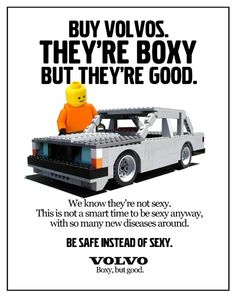
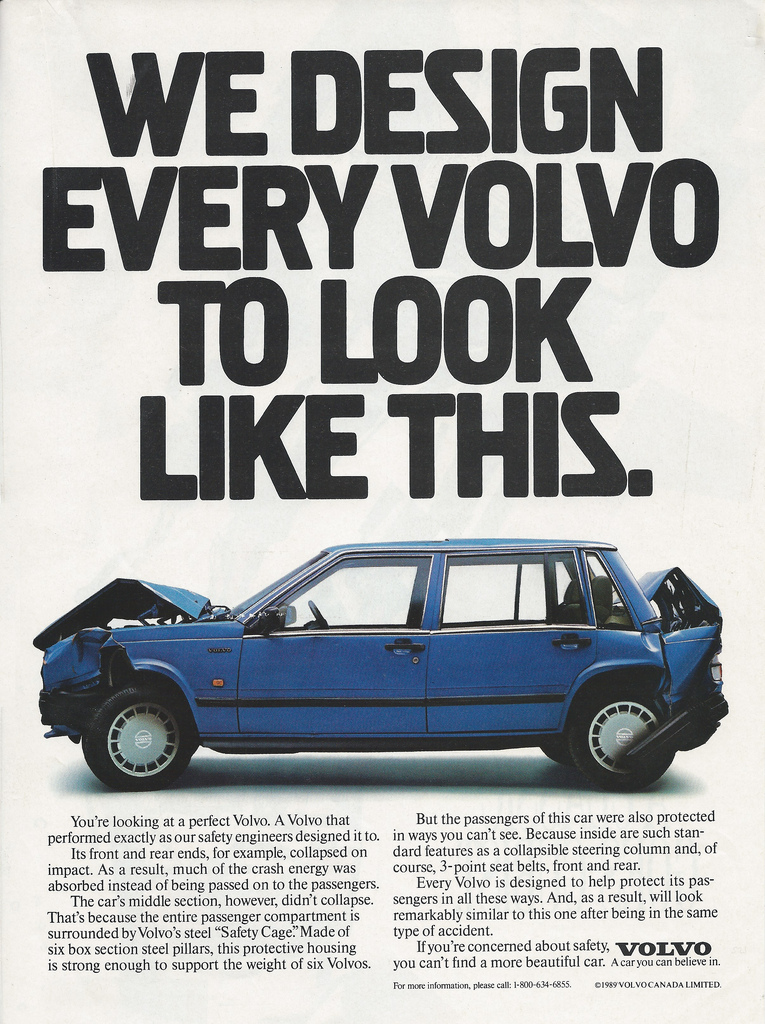
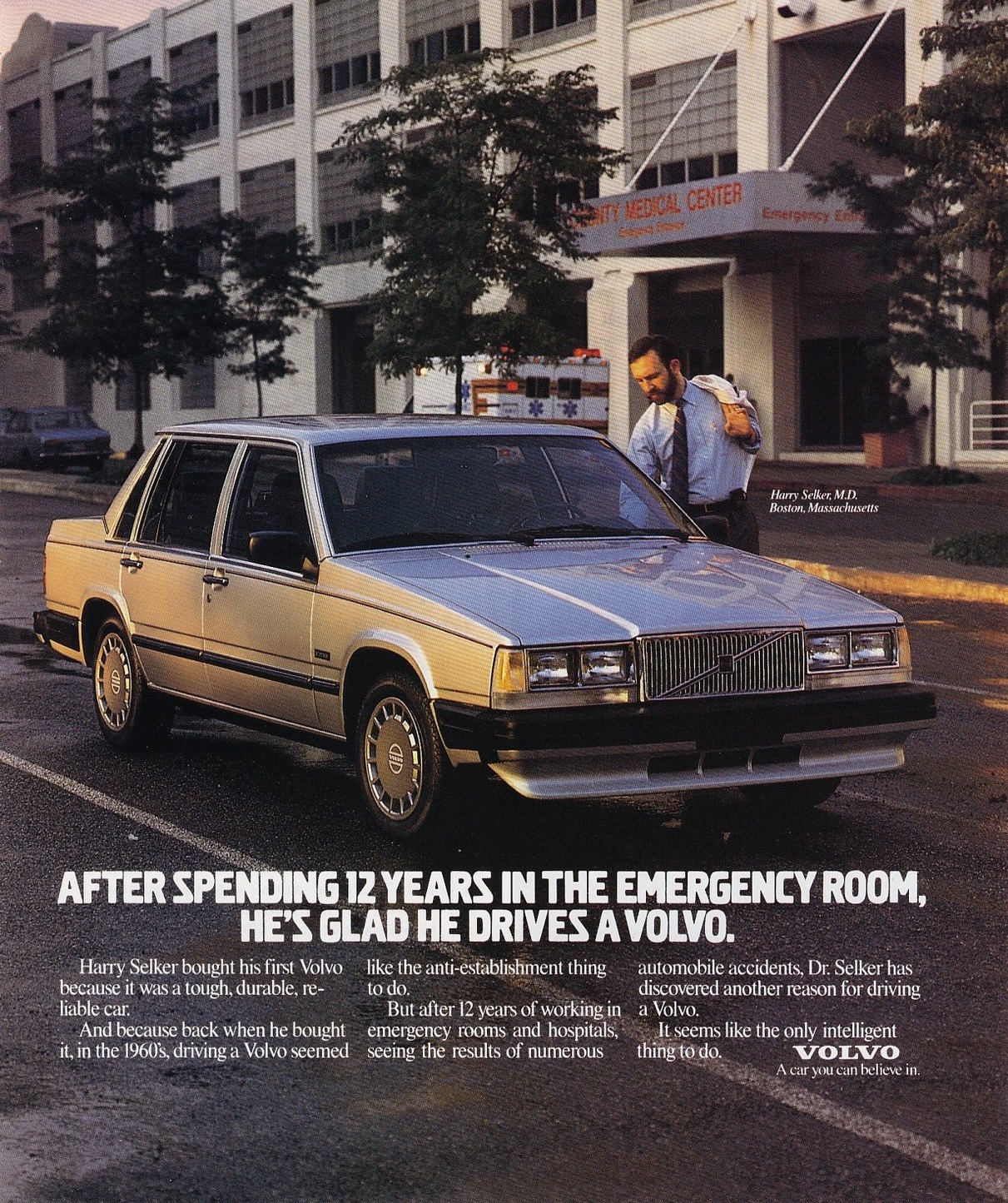
• Is your brand differentiation important to your customers?
After you’ve determined why and how your brand is different from competing brands, you need to validate your hypothesis and find out whether it matters to your customers.
For example, if one of your major differentiations is that your products are more affordable compared to other brands, find out whether affordability is an important attribute to your customers. You may end up discovering your target audience is less price-conscious than you first believed and willing to pay more for higher quality. If that’s the case, you have an opportunity to reposition your brand and sell products at a higher price and profit margin.
To learn why or whether your chosen brand differentiations are important to your customers, perform primary research or create buyer personas.
For more questions for self brand-analysis, visit page 7 on Smartt’s P.A.C.E. digital marketing eBook. -
Conduct primary research
Use marketing research techniques for gathering consumer information directly from potential customers. Examples of primary research techniques are surveys, one-on-one interviews, or focus groups.
To use primary research techniques to learn more about your consumers, you can invite participants who fall under the targeted demographic to a focus group, hand out or email surveys to people in your target audience, or invite participants to have in-depth one-on-one interviews.
-
Develop buyer personas
Buyer personas are fictional profiles for stakeholders who are part of the purchase decision. You may need to develop more than one persona if your product requires a complex sales cycle.Buyer personas help you understand your target audience better by gaining insights on their demographics, fears, and motivations in life. It also helps your marketing team address your audience more effectively.
To create buyer personas, answer the following questions:
Basic Demographics:
• Age?
• Gender?
• Income?
• Family Information?
• Job Title?
What’s their environment like?
• What does their environment look like?
• Who surrounds them?
• Who are their friends?
• What kind of advertisements do they see every day?
• What do their friends say?
• What does their spouse say? What do their family members say?
• Who really influences them, and how?
What do they feel?
• What is really important to them that they may not say in public?
• What moves them?
• What keeps them up at night?
• What do they say and do?
• What is their attitude?
• What are they telling others?
• What are they doing that is contrary to what they say?What are their fears, frustrations, pains, and urgencies?
• What are their biggest frustrations?
• What obstacles stand between them and what they want to achieve?
• What risks might they be taking?
Once you’ve answered these questions and identified who your audience is and what they’re like, you can create advertisements and marketing collaterals that are closely aligned with your customer’s needs.
For more questions to create buyer personas, visit page 9 and 10 on Smartt’s P.A.C.E. digital marketing eBook. -
Repeat your slogan
Large brands such as Nike and McDonalds repeat their brand slogans consistently across marketing collaterals to improve brand recognition and recall. Below are examples of Nike and McDonald’s including their slogans, Just Do It and I’m Lovin’ It, respectively, on print ads:
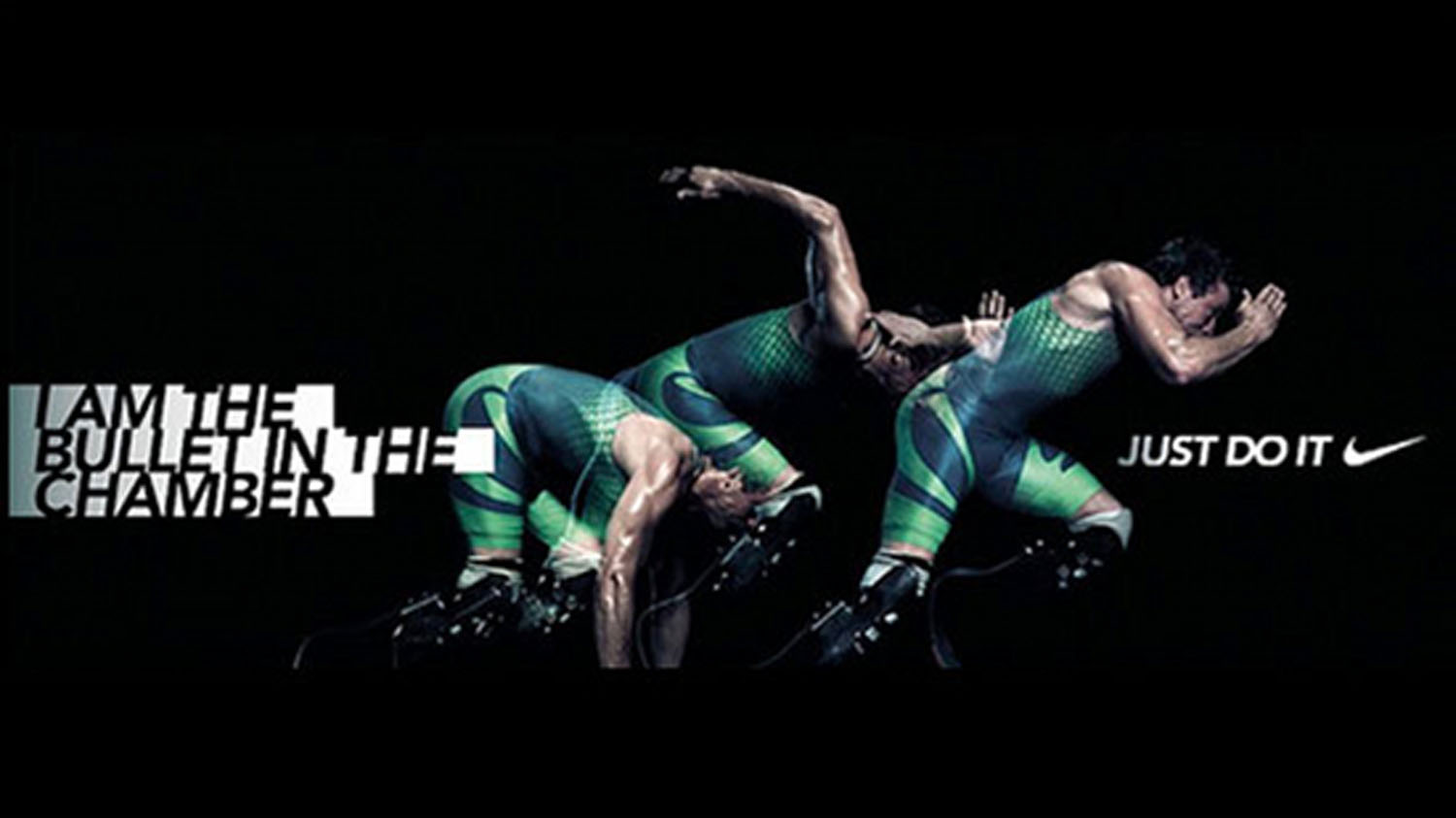

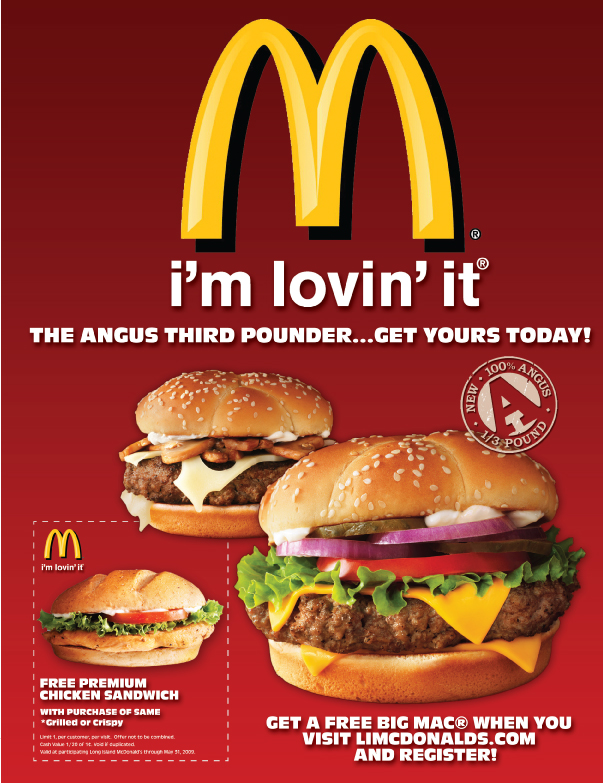
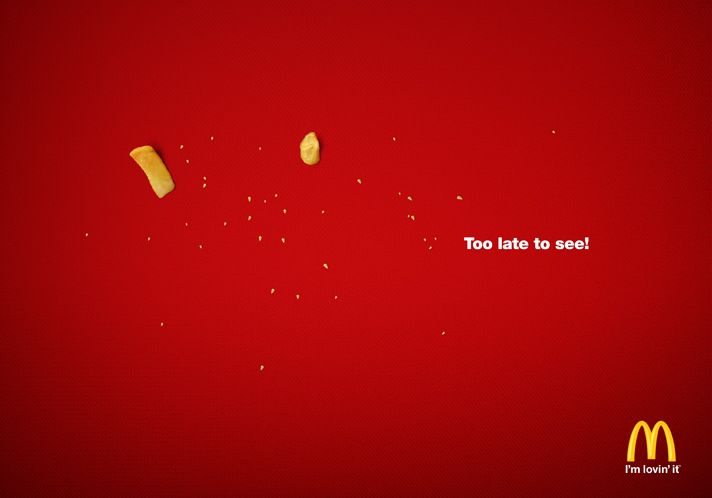
Repeat your slogan on your social media accounts, blog posts, and other web content.
As an example, Canva is a start-up whose online platform lets users create graphics easily; the company includes its slogan Amazingly Simple Graphic Design Software in its title tag, Twitter and Facebook bios, and other communication channels. This approach helps current and potential Canva users remember that Canva is a simple graphic design software!
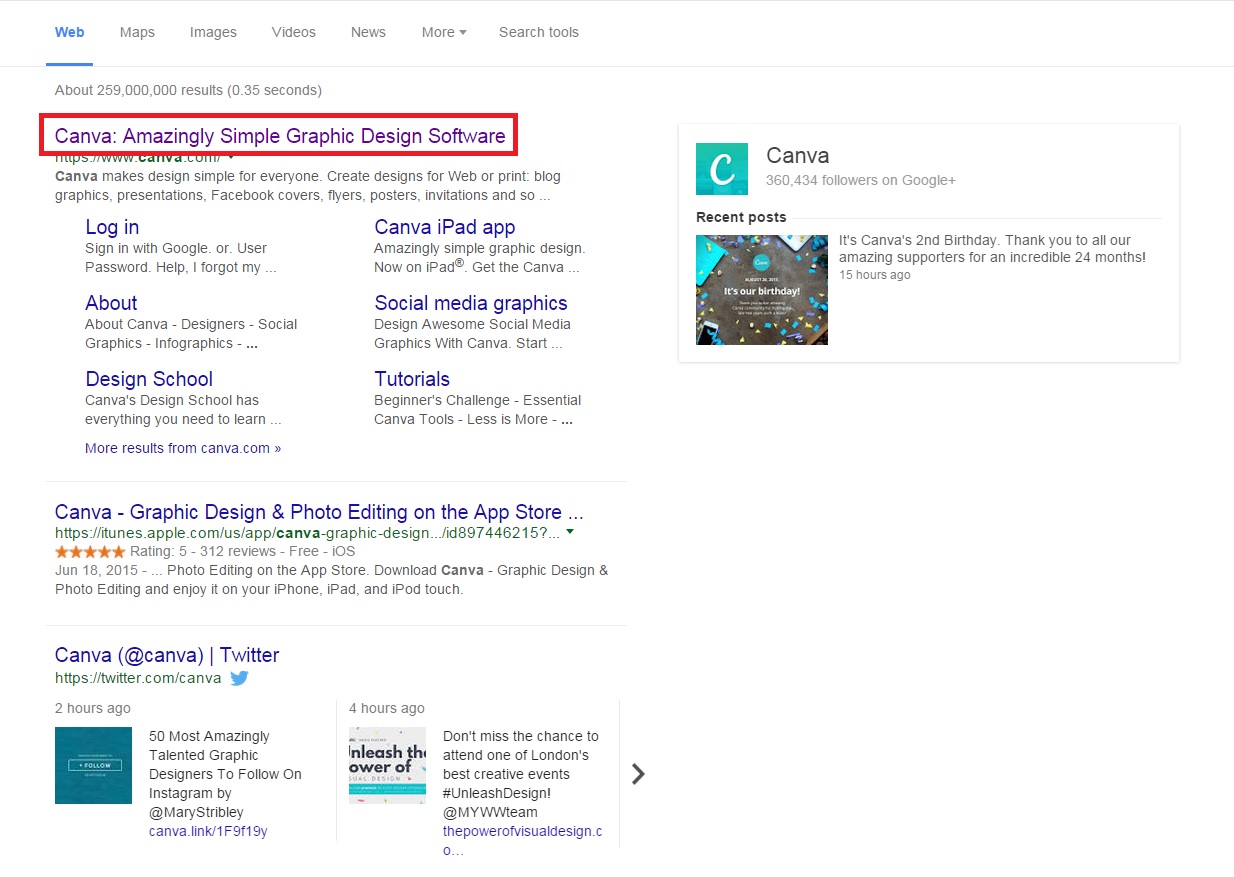
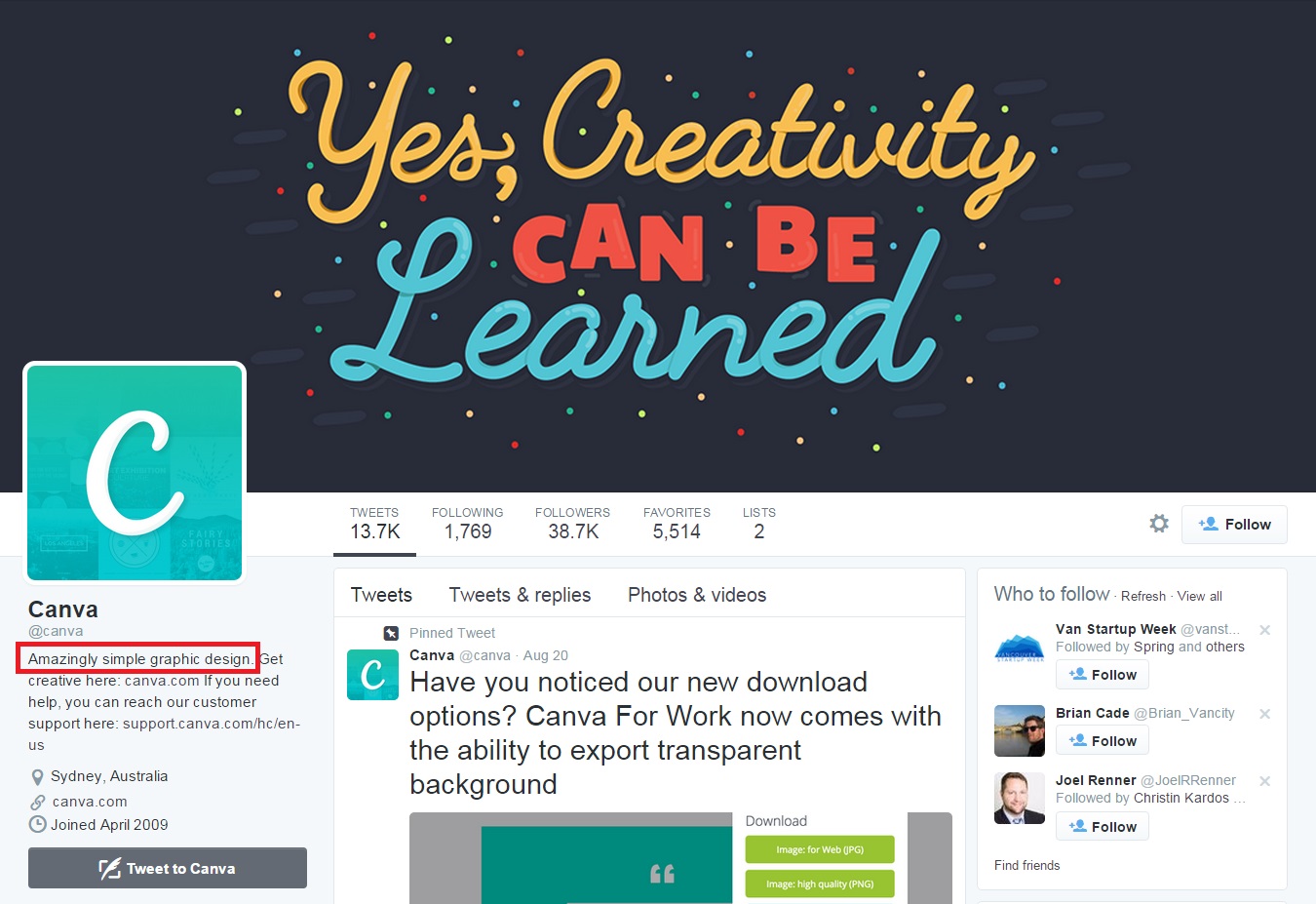
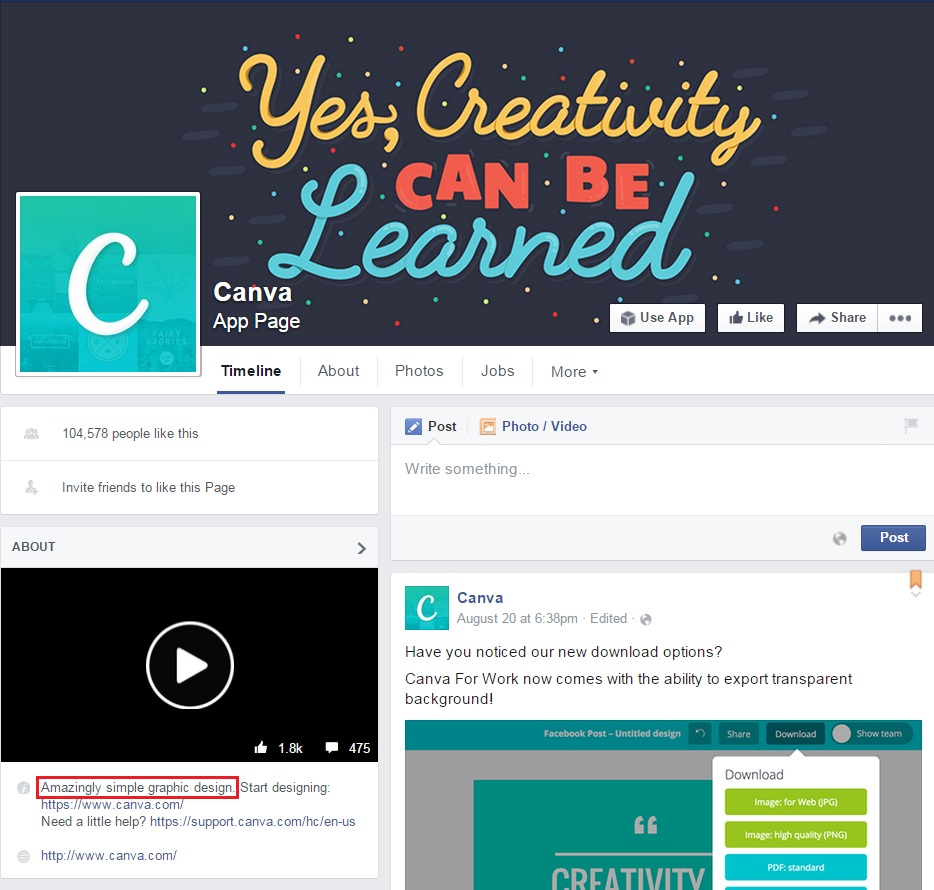
-
Use consistent brand colors
Major consumer brands such as Tiffany & Co., Airbnb, and Adobe software use distinctive colors for their logos which help them improve brand recognition and recall.
Here are examples of Tiffany & Co.’s usage of consistent brand color in ads:

Here are examples of Airbnb’s usage of consistent brand color in ads:
Here are examples of Adobe’s usage of consistent brand color in ads:
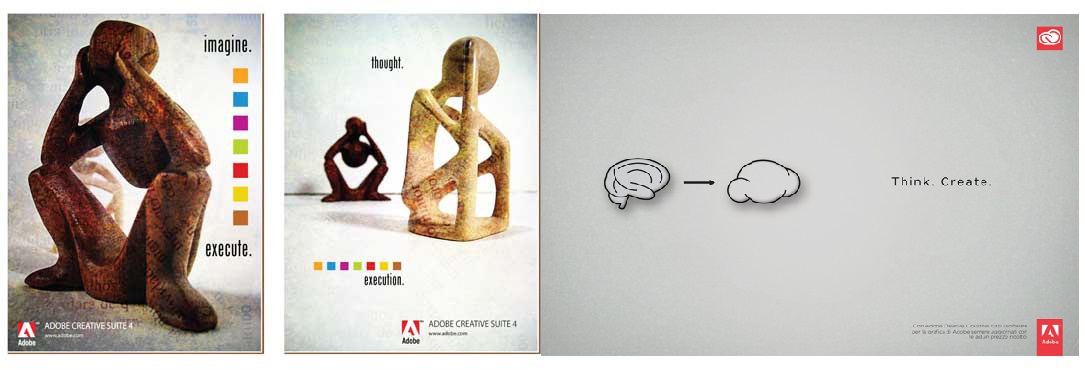
Start-ups should also apply this branding tactic by ensuring brand images on social networks, print ads, other marketing collaterals are using consistent colors. While this concept is simple, we’ve seen companies using inconsistent colors for their brand images and logos on social media and other digital channels. This happens most often when start-ups don’t invest in creating a style guide which the marketing team must follow when creating collaterals.
Developing a strong brand is one of the most important goals for start-ups. A strong and recognizable brand will help start-up companies gain brand awareness faster and get the recognition they need to attract investment, retain customers, and increase revenues.
If you have any questions about branding, please feel free to contact Smartt and arrange a complimentary meeting with one of our consultants.
Smartt is a digital consulting agency that offers digital marketing, website development, branding, and IT services.
The branding services we offer include Brand Strategy Roadmap and Brand Identity Creation.
For Brand Strategy Roadmap services, we run workshops that help clients validate their positioning and customer personas, perform market research, create brand identity guidelines, and develop a brand launch plan.
For brand Identity Creation, we help clients design collateral grid systems, develop templates and guidelines, select formats and paper stock, create functional prototypes, and design collateral elements.


